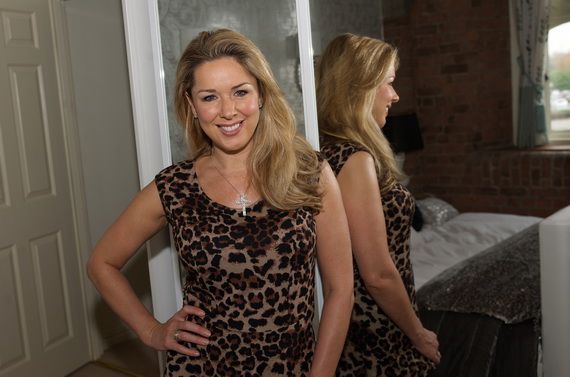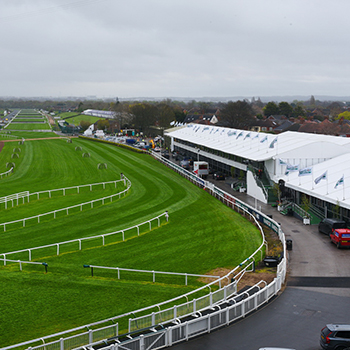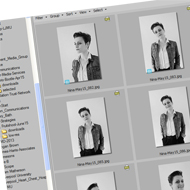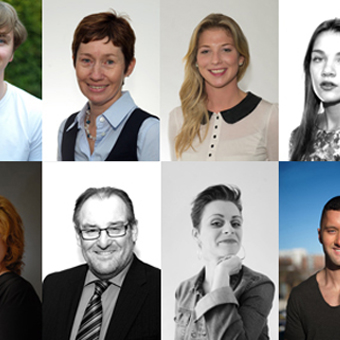Top 6 tips on writing a killer brief for photographers
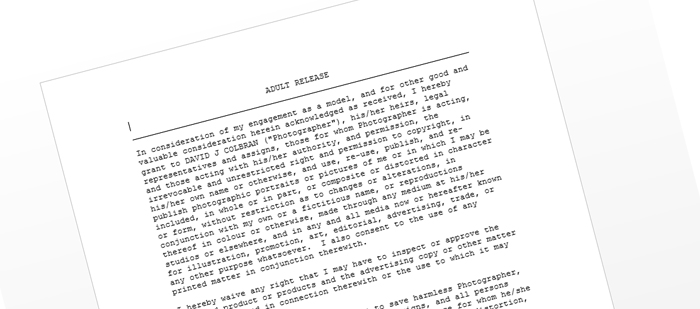
Published on Tue Feb 18, 2025 by David J Colbran
First up, why is a photographer writing about photography briefs? Well I honestly believe professional photography is vital in getting a message across from organisations and brands to any audience. And the best way to do this is a successful brief.
Trust me, I've seen loads of brief documents and drawing on my experience I thought I would blog my tips and advice. The best briefs in the past have enabled me to understand exactly what a client has in mind and prompts me as to what I can bring to the project. Both in terms of creative ideas and technical equipment.
Ensuring your next shoot is a winner depends on writing a killer brief. Writing out requirements and agreeing them with a photographer prior to the event will minimise problems and ensure you and your business get the best value for money. The best creative briefs will help the photographer understand your brand and target markets for the images created. It will demonstrate how the photographs are to be used and clearly set out the basics; time, location, budget and file delivery requirements. Getting the best ROI from your creatives is essential when budgets are squeezed.
1. Outline clear goals for the project.
Write exactly the objectives of the shoot. For example, what you want the audience to feel when they see the images and the relationship with the brand. Are they to inspire customers - a call to action advert? A publicity image, raising brand awareness? A feel good internal story for colleagues? Product photography highlighting a new and exciting item for sale?
Always good at the outset to include previous photo examples of what has worked in the past, or images from competitors that you like. As is bad examples and what you don't want!
Suggest any features that need highlighting - unless you have used the photographer before, assume they know zero about the brand. So note ideas and concepts down. Brand colours, logos and props are a good starting point, on the road to creating unique shots. Include other activities connected to the campaign, attach any brand guidelines and any other brand collateral that you might have. It might be obvious to you, but not to the photographer.
Try and arrange a time to call and speak through the brief before the commission about ideas, no matter how silly. It will be really beneficial. The best photographers will be experienced and have done many similar shoots - pick their brains, work out that knowledge, its all part of their fee but if you don't ask, often you don't get. So quiz them!
2. Clarify the roles of people in the images.
If the commission is to be used for advertising purposes, you will need to get individuals to sign model releases. A model release is a written and signed agreement between the photographer and the person you are photographing, the purpose of which is to protect (release) from that person any legal claims like invasion of privacy, defamation of character, etc. at any point in the future. Professional models and actors usually will be fine and familiar with this, members of the general public less so. Most photographers will have these on file but not all will bring them, unless requested.
Also think of what the people will be wearing. If it is organisation uniforms, ensure they are complete, up-to-date and clean! Think about any safety equipment required - a photographer won't know uniform branding or safety equipment in various work places. So spell it out.
Finally, make sure the people appearing in the photos are warned ahead of the day and they agree to what you have in mind. Nothing worse than hoping the staff will be your models, not telling them and for them all to disappear when the photographer arrives!
3. Photoshoot details - time, date and location and getting them right
The basics but make sure they are there and crystal clear.
Include mobile contact numbers of everyone involved, in case of unforeseen delays and last minute changes of plan. If outdoors for all, or part of the photography shoot, make achievable plans for bad weather conditions. Is there a wet weather alternative location indoors? Also at this stage note any cancellation policies that a photographer has and highlight these to budget holders and decision-makers. Confirm as well, that delays to the shoot might have consequences, both logistical and financial - if for example the CEO is a hour late for his or hers portrait, it will almost always increase the photographer's fee. And check with them their schedule. It is fairly common for busy photographers to have several appointments in one day and they might not be able to wait, even if you are happy to pay them extra.
Think about the location, explaining lighting conditions - is there any natural light from windows? Also consult with the photographer and ask about equipment size - especially if they going to bring in a mobile studio set up - is there space? Has a room been booked? If it is for a series of portraits, ask the photographer for an estimate of time required per person and draw up a timetable. Most people are not totally happy having their photograph taken, and this is only amplified, if all their colleagues are there, waving and pulling faces behind the photographer and camera. Another thing to arrange is parking provision for guests and the photographer and always include venue contact details - letting reception staff know what is happening is always polite and wise.
Are there any health and safety issues to figure out? Will visitors need PPE gear, site passes or permission for other people to get to the photography location? It is often a good idea for larger commissions to talk to the photographer to suggest a pre-shoot site visit if budgets allow. It will iron out any problems and give the creative photographer valuable thinking time, so on the day of the shoot they are ready to go with hopefully some great ideas.
4. Define the image usage
Most of the time you will only need a photograph for a particular use over a particular period of time - let the photographer know this. Buying the "copyright" so you will "own" the image will be prohibitively expensive. Professional photographers will charge a premium price for this, as they are effectively signing away their work and can never use or display the image again. The only time this might be appropriate is for big budget, above the line advertising shoots. But for most other sectors it is overkill and agreeing specifics is the industry norm.
Specifics can include;
- platform / media - magazines, press, public relations, web use etc.
- exclusivity rights - i.e. if you don't want the photographer selling / using the images elsewhere
- time specific - the time period you can use the image for.
Prices and fees will increase the more platforms you intend for the finished images, the higher the level of exclusivity you require and the longer the time period is.
5. Agree a delivery date for final image files
State any press or other deadlines you are working towards. If you need rushes on site, ensure this is clear in the brief, so the photographer knows to bring a laptop. How the files are to be delivered is another item to add to the list, for example online via Dropbox / WeTransfer. And check beforehand that the system you decide can make it through the offices firewall. Nothing worse than hitting problems close to a deadline and finding out that the photographer is away on another commission and can't use an alternative method until much later. Also it is helpful sometimes to suggest a rough estimate of the number of finished files you are expecting. Be realistic, a quick PR shoot of a ribbon cutting or a big cheque is only going to result in half a dozen photographs. Similarly, for something a bit more complex, a photographer providing a top 20 different images, is always much more useful than them dumping 100 plus similar files and then having a long discussion with end clients, CEOs and other stakeholders going through them all.
State the file format required. Most of the time it will be JPG - the industry standard. But it might save you time to specify files sizes - for example, asking to supply in both hi-resolution for traditional media and print and a batch copy at a web resolution. Most photographers will be able to do this very easily and then you will have files ready to pump out on social media straight away. Also think about the end use of the images - specify the orientation i.e. portrait and landscape - if relevant and consider asking for images that can be cropped in to a "letter box format" i.e. wide and not very tall - for things like banners on web slideshows or adverts. A final consideration here in regards to formatting, is that if the commission is for products or perhaps high-end advertising - anything that might require professional re-touching - you may need to negotiate either TIFF or RAW file formats.
6. Detail the payment procedure.
Include when and where the photographer needs to send their invoice. Also state any purchase order, or other information that needs to be included on the paperwork - saves a lot of messages going backwards and forwards, after the shoot. Ask about the photographers credit periods and if there is any discounts for pre or early payments. It will definitely win you fans in the Finance department and of course a photographer that gets paid on time is going to be super keen to help out again.
Final words
Allocating a marketing campaign budget will always be difficult and stressful and ensuring you get the best out the photography element is essential. Writing a killer brief for the photography part will help maximise your return on investment and hopefully the above tips give you a great starting point.
Of course, if you are looking for an experienced Liverpool photographer, give me a shout, I'm based in the North West but do a lot of travelling around the UK, so I might be able to help.
And if you've read this far and found it useful, please share via the social media buttons below. Thanks.
What next ...
Check some more of my popular blog posts. Read my tips for creating great public relations photography or learn the best ways to hire a conference photographer.
Or perhaps check my top ten tips for pr photography - I've been a full time professional freelance photographer for over 20 years so have some quality public relations advice to share.

Author: David J Colbran
- < Previous news post
- Recommended Conference and Awards Photographer case study Next news post >
- Lend With Care
Aintree Grand National Liverpool PR Photographer 2026
Currently available to take on commissions for events, PR and celebrations at the Grand National meeting in Aintree 9th to 11th April - get in touch ASAP - it is a very busy time for me and I get booked up quickly
Workflow for business photography
Having an efficient digital workflow is something that most professional photographers aspire to. Why? Well at the end of the day, getting images processed and delivered quickly to clients is super important.
The best clothes to wear for portrait headshots
Tips on what you should wear for a head and shoulders photo session for business people, professional actors, actresses, musicians, singers, writers and presenters. Practical and sensible advice.
Jane Kerr, Communications specialist.
